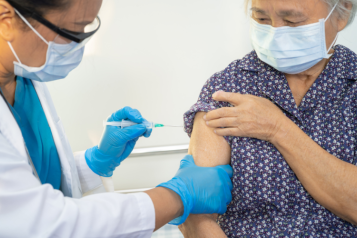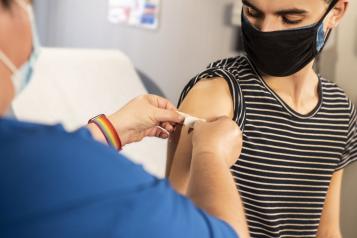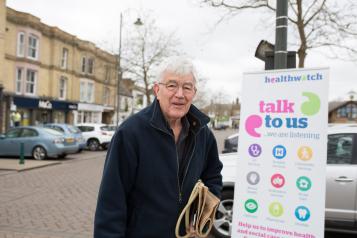What have we learnt from our recent COVID-19 engagement work with LEGS?

When the pandemic took hold earlier this year, we wanted to reach people in Westminster and Kensington & Chelsea who are under-represented in conversations about health and social care and ensure their voices are heard during this challenging period. To do this, we collaborated with local community groups to run focus group sessions, interviews, and surveys. Our latest report presents the results of a focus group carried out with LEGS.
A number of recurring issues and themes have emerged over the course of our collaborative work on the impact of COVID-19. Many of these themes were seen in our work with LEGS.
Digital exclusion
Across our engagement work on COVID-19, digital exclusion is an issue which has been frequently discussed.
From listening to participants’ stories, we found that a lack of access to and understanding of new technologies can present a significant barrier for support and engagement. Some participants told us that even though they had access to technology, they still felt excluded from receiving the support they needed. One participant told us that
“I am using the Zoom platform now, through LEGS, but [my physiotherapist at UCLH, in the hospital for neurology] is using something called Attend Everywhere. I am not young, so using all this new technology is very stressful. Because I have a carer, who is young and understands technology, they could help me.”
Importantly, digital provision does not just exclude people with no access to technology. The ability or desire of someone to use technology for their healthcare are two other important factors that can lead to digital exclusion. The conversation around digital exclusion, and the solutions proposed to ensure all people are included, must take into account that having the appropriate technology is not the only factor in combatting this issue.
Other participants told us that digital solutions did not provide a good replacement for existing arrangements.
One told us that
“Some things you can’t just have on the phone. I go from someone saying, ‘you must come in and have your treatment, to someone saying, ‘now you can’t.”
Another participant observed that
“Being with the person you are talking to really does help.”
Digital exclusion is an important issue. It is an issue with many different sides, perspectives, and problems. At the moment, we are in the process of developing a project to engagement substantially with the issue in the coming months.
Access to non-emergency treatment
Participants across much of our COVID-19 engagement work have expressed worries about the long-term impact of cancelled appointments, check-ups, and non-emergency surgeries. This was an issue that we explored in detail in our collaboration with LEGS.
Participants told us about the strain they feel living with uncertainty about their treatment. As one participant put it
“I am waiting for everything; it’s all been rescheduled. Nothing is urgent, but it’s all ongoing.”
This is an issue which many people have spoken to us about. In our work with Breathe Easy Westminster, for instance, we found that 10% of participants have had trouble accessing regular medication from their pharmacy. As health and social care service providers begin to put in place long-term plans for living with COVID-19, stronger arrangements to safeguard vital non-emergency treatments need to be made.
Worries about lockdown easing
During the first, second and third national lockdowns, people have told us about their worries about lockdown easing. People have expressed worry about the long-term impact of these lockdowns, and about how safe life after lockdown will be.
In our focus group with LEGS, which took place one restrictions began to ease after the first national lockdown, one participant told us that
“Going back out after a long time inside was hard. I was scared.”
Some participants also expressed concerns about the safety of going outside. Many people we spoke to had experienced disruptions to physiotherapy treatment which meant leaving the house presented a greater challenge.
From our engagement work it is clear: an awareness of the unique challenges, both mental and physical, which many people will face once restrictions begin to loosen is vital.
Looking forward and safeguarding standards
As measures to contain COVID-19 remain in place, listening to patients’ voices, learning from their experiences, and adapting processes accordingly remains important. It is vital that the voices of patients and carers are listened to in discussions about new ways of working, and when commissioning and evaluating services.
You can read our full report now. We would like to say a massive thank you to LEGS for all their hard work on this project.


